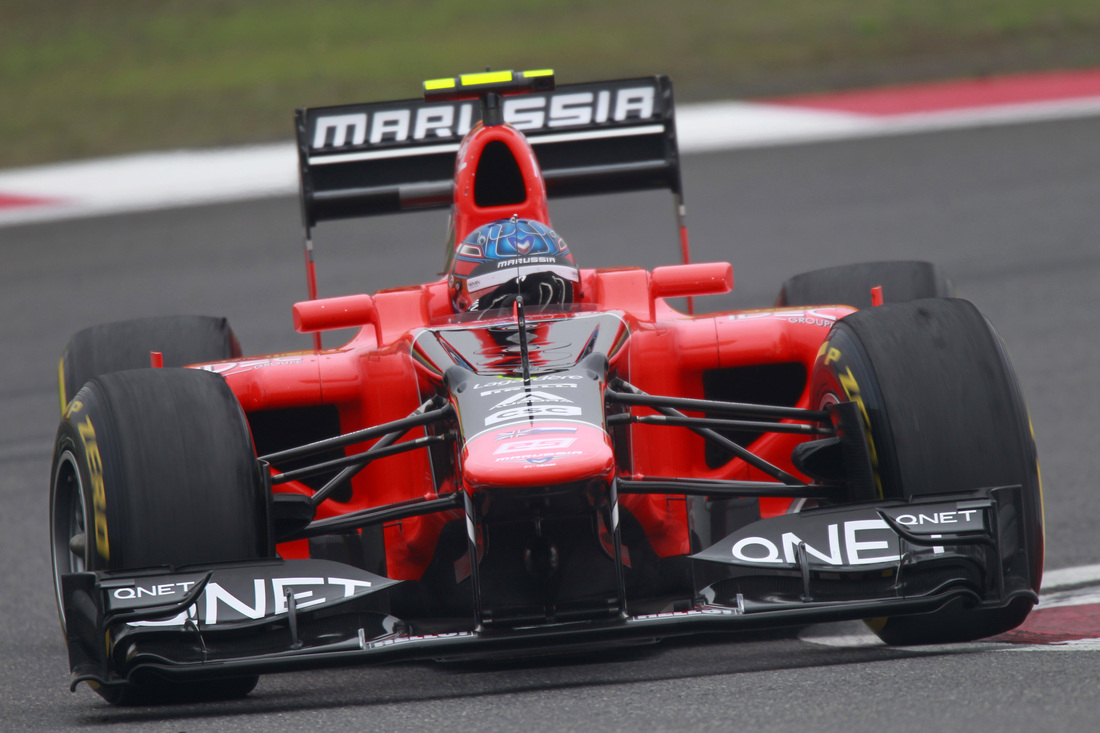Formula 1 teams are heading for a major crash. Within the next 18 months the “smaller” independent teams who make up the midfield and back of the grid will face serious challenges to continue to compete as costs will rise significantly. With the introduction to a new set of technical regulations from 2014 onwards more expensive machinery (in the form of different power-trains and engines) will need to be developed. F1 team owners and investors will be tightening their seat belts at the prospects of having to fork out up to an extra $25 million next season to cover the increases. "We have made some mistakes with introducing the new power-trains, we didn't control the costs enough, and the sport may well pay the price of that very soon," says Martin Whitmarsh boss of McLaren.
Last month Marussia, the team who finished last in the 2012 championship, announced record losses of $56 million. Though Marussia F1 is not in debt, it’s not a widely held belief in the paddock that such a trend can continue for much longer, especially with the new prize money structure that was put in place in 2004. Prize money is differed for three years, in order to encourage commitment to go racing; Marussia received nothing last season and so had to raise money from sponsors and road car sales from the parent company thus treating Formula 1 as a very expensive form of advertising.
The prize money is divided up based on championship position (previously it was divided up based on the amount of points scored in the championship where the amount won was a ratio of the top championship winning team’s total) which means that 1st place in the table will have a pre assigned amount and so once the championship positions have been decided, usually with a number of races remaining, there is little incentive to ramp up a greater points hall.
The average team budget has been reduced from $282 million per team in 2009 to $161 million in 2010 and $150 million in 2011 – in-line with a cost-cutting drive – that figure is skewed somewhat by the arrival of newcomers Lotus and Marussia. However this figure is likely to increase dramatically over the coming seasons and it is expected that some constructors will have to put the brakes on going racing. Ferrari spent $240 million in 2012 which left Marussia’s $51 million budget at the side of the road.
Despite massive bills and relatively little prize money no F1 team has ever registered as going into debt. Debt doesn’t exist in F1 like it does in football. This is due to the mechanisms in place for gaining entry and being permitted to continue in the franchise. Access to the Formula 1 roulette wheel requires financial guarantees from the moment an entry enquiry is made. A prospective team must fulfil strict monetary criteria that are designed to ensure that a competitor has enough cash to survive for at least two seasons.
Part of this requirement is that the prospective team lodges about $60 million dollars into a locked bank account 3 months before the start of the season. This account can not be touched and therefore acts as a threshold or cushion of
capital. If a team ever attempts to access these funds it is deemed that financial credentials are not strong enough to grant further access to the franchise and the team must fold. It happened to Super Aguri Honda midway through 2008, the last time a team has checked out before the season’s end, when the team had a liquidity problem and so folded rather than borrow money. It’s a mechanism that has seen 124 teams enter and leave the F1 World Championship with Ferrari being the only ever present since the championship began in 1950. It also highlights how financially strong the business end of the Formula 1 franchise is. In 2007 McLaren were forced to pay a $100 million fine for spying on another team. They remained in contention for the championship that season and won the driver’s title with Lewis Hamilton a year later. It sends out a strong message that a team can let go of $100 million and carry on competing in an industry with stringent financial controls and massive outgoings. It’s a tight policy but it has ensured that there are no “cut price” attempts to go racing resulting in large arrears.

 RSS Feed
RSS Feed